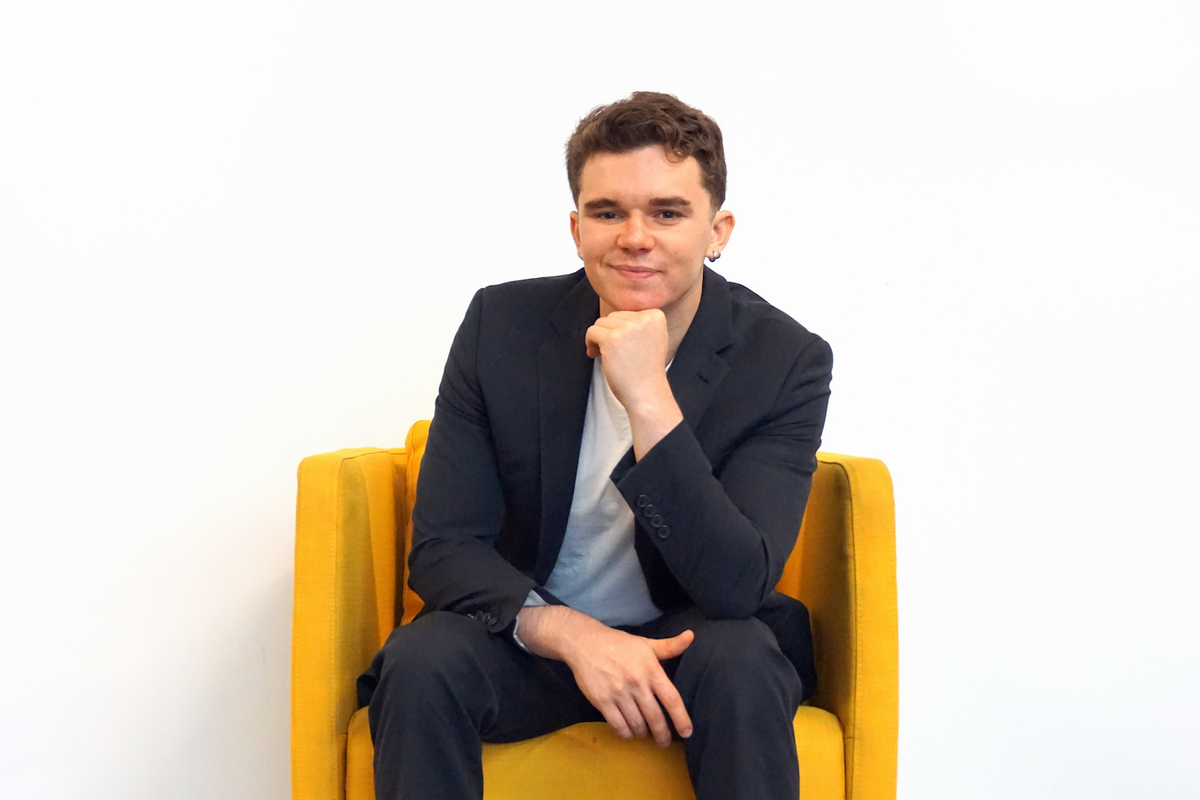year in review
The future is here: Top Houston energy transition startup stories of the year
Editor's note: As the year comes to a close, EnergyCapital is looking back at the year's top stories in Houston energy transition. EnergyCapital covers the entire energy transition ecosystem, including the businesses from major public corporations to small but growing startups with promising technologies. This year, top energy startup news included award-winning innovators, a new hub for energy tech startups, big deals, and more. Check out each of the most-read stories below — be sure to click to continue reading each article.
Local energy innovators recognized at annual Houston Innovation Awards

At an event celebrating Houston innovation, these four energy transition leaders were recognized. Photos courtesy
This week, the Houston innovation ecosystem celebrated big wins from the year, and members of the energy transition community were recognized alongside other innovators.
The Houston Innovation Awards honored over 40 finalists across categories, naming the 12 winners and honoring the two Trailblazer Legacy Awards at the event. The event, hosted at TMC Helix Park on November 14 named and celebrated the winners, which included four energy transition innovators. Click to see what energy leaders secured wins.
Houston startup taps new corporate partner for AI-backed sustainability consumer tech

IBM and Boxes recently partnered to integrate the IBM watsonx Assistant into Boxes devices, providing a way for consumer packaged brands to find out more than ever about what its customers like and want. Photo courtesy of Boxes
With the help of a new conversational artificial intelligence platform, a Houston startup is ready to let brands get up close and personal with consumers while minimizing waste.
IBM and Boxes recently partnered to integrate the IBM watsonx Assistant into Boxes devices, providing a way for consumer packaged brands to find out more than ever about what its customers like and want.
The Boxes device, about the size of a 40-inch television screen, dispenses products to consumers in a modern and sustainable spin on the old-fashioned large vending machine.
CEO Fernando Machin Gojdycz learned that business from his entrepreneur father, Carlos Daniel Machin, while growing up in Uruguay.
“That’s where my passion comes from — him,” Gojdycz says of his father. In 2016, Gojdycz founded Boxes in Uruguay with some engineer friends
Funded by a $2,000 grant from the University of Uruguay, the company's mission was “to democratize and economize affordable and sustainable shopping,” in part by eliminating wasteful single-use plastic packaging. Click to continue reading.
Houston startup selected for inaugural climatetech global entrepreneur competition

Syzygy Plasmonics is going to be competing in Gastech's new startup competition. Photo via Getty Images
A global natural gas, LNG, hydrogen, low-carbon solutions, and climate technology convention is coming to Houston next month — but only one Houston startup is geared up for the event's new startup competition.
Gastech invited 20 promising companies for its inaugural Gastech Start-Up Competition, and 11 companies have signed on to participate so far. Houston-based Syzygy Plasmonics, which created and is scaling a sustainable photocatalytic reactor, is currently the only local company among the participants.
“Gastech's focus on creating a low-carbon, affordable energy future aligns perfectly with Syzygy's drive to produce low-carbon, low-cost hydrogen, liquid fuels, and syngas," Syzygy Plasmonics CEO Trevor Best says. "We can't wait to represent Houston as the only startup from the area to be included among the 11 finalists in the Gastech Climatetech Global Entrepreneur Competition.” Click to continue reading.
Houston leaders launch new downtown hub to support energy transition innovation

Energy Tech Nexus has opened in downtown Houston. Photo by Natalie Harms/EnergyCapital
Three Houston energy innovators have cut the ribbon on a new space for energy transition innovation.
The Energy Tech Nexus, located in the historic Niels Esperson Building at the corner of Travis and Rusk Avenue, opened on September 10, which was proclaimed Energy Tech Nexus Day by the city.
Jason Ethier and Juliana Garaizar, formerly in leadership roles at Greentown Labs, teamed up with Nada Ahmed, previously headed innovation and transformation at Aker Solutions, launched ETN as a community for energy transition startups. The new hub plans to host incubation programs, provide mentorship, and open doors to funding and strategic partnerships for its members.
"We are creating more than a space for innovation," Garaizar says in a news release. "We are crafting a community where pioneers in technology and energy converge to challenge the status quo and accelerate the shift to sustainable energy solutions." Click to continue reading.
Houston bio-based materials founder rebrands, evolves future-focused sustainability startup

Zimri T. Hinshaw, founder and CEO of Rheom Materials, joins the Houston Innovators Podcast. Photo courtesy of Rheom
At first, Zimri T. Hinshaw just wanted to design a sustainable, vegan jacket inspired by bikers he saw in Tokyo. Now, he's running a bio-based materials company with two product lines and is ready to disrupt the fashion and automotive industries.
Hinshaw founded Rheom Materials (née Bucha Bio) in 2020, but a lot has changed since then. He moved the company from New York to Houston, built out a facility in Houston's East End Maker Hub, and rebranded to reflect the company's newest phase and extended product lines, deriving from dozens of different ingredients, including algae, seaweed, corn, other fruits and vegetables, and more.
"As a company, we pivoted our technology from growing kombucha sheets to grinding up bacteria nanocellulose from kombucha into our products and then we moved away from that entirely," Hinshaw says on the Houston Innovators Podcast. "Today, we're designing different materials that are more sustainable, and the inputs are varied." Click to continue reading.





